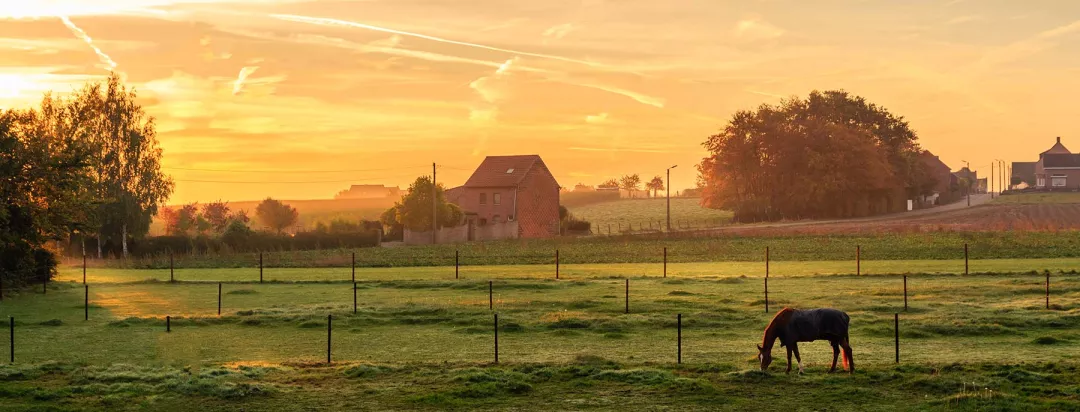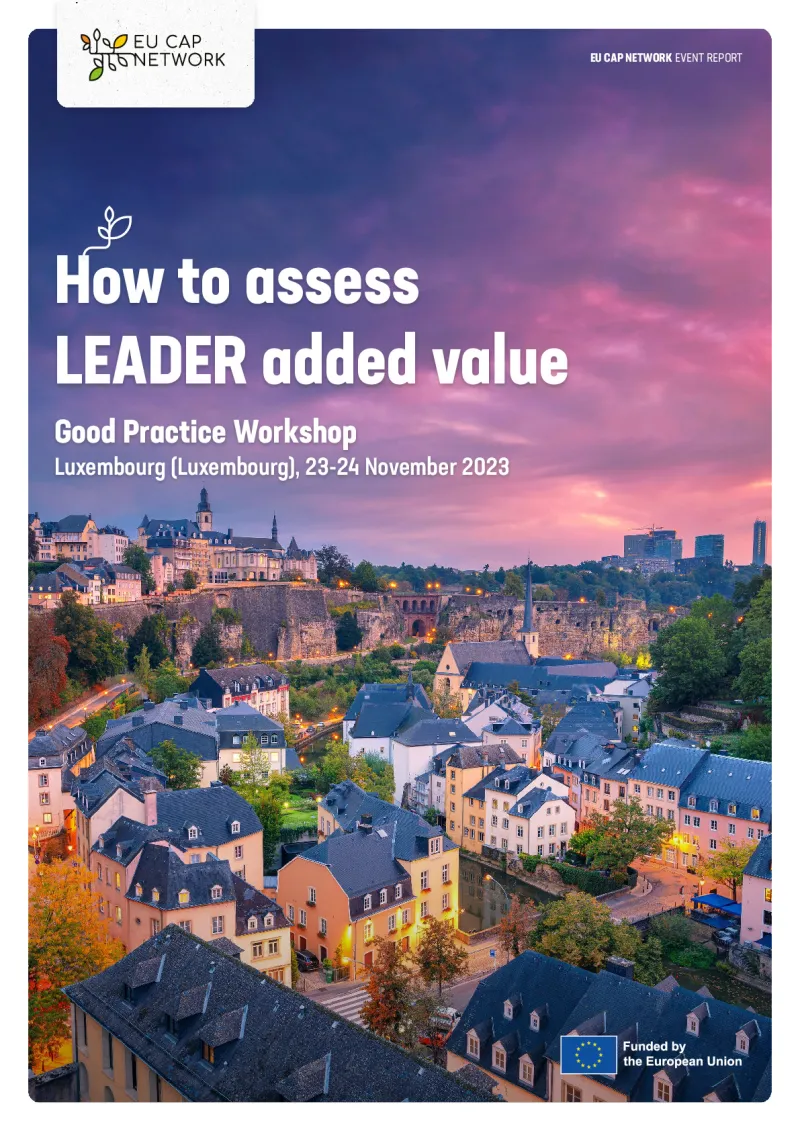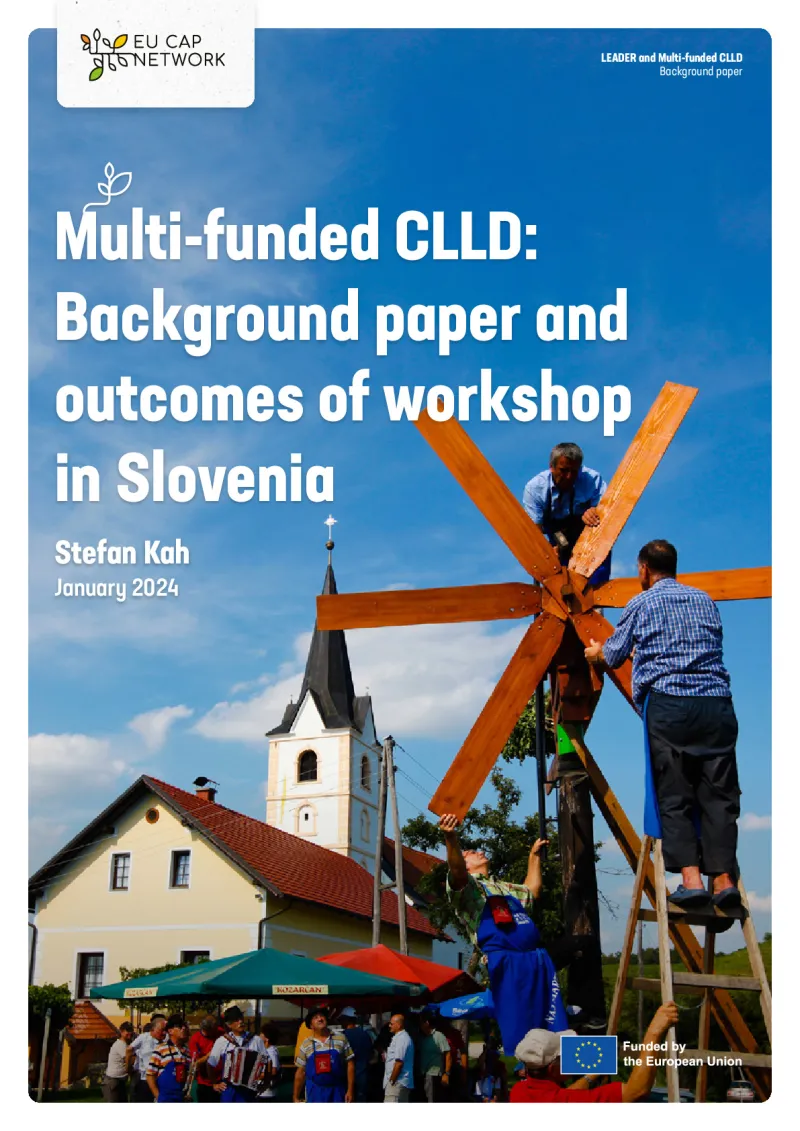Bringing LEADER-led benefits to rural Belgium
- CAP Implementation
- Agricultural Productivity
- CAP Strategic Plans
- Climate and Climate Change
- Communication
- Digitalisation
- Economic impacts
- Education
- Environment
- Food Supply Chain
- Forestry
- Fostering Knowledge & Innovation
- Generational Renewal
- Green Deal Targets
- Jobs, Growth and Equality in Rural Areas
- LEADER
- Long-term Vision for Rural Areas
- Networking
- Rural Development
- Smart Villages
- Social Inclusion
- Sustainability
- Tourism
Thanks to the Belgian CSP Managing Authorities and National Networks for their help in preparing this article looking at how LEADER is used to create rural development benefits across Belgium.

This edition of the LEADER newsletter looks at how LEADER is being used to create rural development benefits in Belgium, the country currently hosting the Presidency of the EU Council. Belgium has two CAP Strategic Plans (CSPs), and LEADER’s capacity for supporting bottom-up approaches to rural development is accommodated by both of them. We would like to thank Belgium’s CSP Managing Authorities and National Networks (Flanders and Wallonia) for their help in preparing this article.
Collectively, the two Belgian CSPs have a LEADER budget of more than €35 000 000 (€25 278 700 for Flanders and €9 937 440 for Wallonia). The Walloon CSP can fund up to 21 Local Action Groups (LAGs) and the Flanders CSP funds a further 15 LAGs.
In Wallonia, LEADER is being applied through territorial development goals to use LAGs as a network of local support services, funding projects that help to affirm the multifunctional character of rural areas. This approach to local development is well established and has been adapted to the diversity of Walloon rural areas since 1991, when the region started working with LEADER.
For Flanders, a thematic LEADER approach in the 2023-2027 period will be to support local development strategies that follow the ‘Three Ps of sustainable development’ - People, Profit, and Planet. This includes emphasis on integrated funding for ‘sustainable agricultural production and sales and valorisation of biomass residues' to help ensure a healthy rural economy.
LAGs in Flanders are also promoting project funding for 'lively and liveable villages', with aims to strengthen the social fabric of local communities and smart villages. Meanwhile, environmental support from LEADER centres on assistance for 'biodiversity and landscape quality' activities that can conserve nature and tackle regional climate challenges in Flanders.
Wallonia’s LAGs are also predicted to create a broad range of project results that will contribute to all three of the CAP’s General Objectives. LEADER's multi-sectoral methodology remains innovative as a so-called ‘supra-municipal partnership’ approach to supporting rural communities in the region. Lessons from implementing the LAG-led bottom-up local development techniques will continue to be an inspiration for other sectoral policies affecting rural communities, such as housing, mobility, and employment.
Strengthening LAG-led development
A dedicated support package for LAGs is being developed by the new Walloon National Network. This includes an expert working group that will follow and help steer LEADER’s implementation. Good practices are to be exchanged between LAGs, with other details about the National Network’s support plans for LEADER in Wallonia to be released soon.
Flanders LAGs are now selected and operational. Their projects will be added to the library of Flemish good practice projects supported by CAP funds. The Flanders Managing Authority places a lot of significance on ‘LAG ambassadorship’, and the LAG managers are supported to both promote and to represent their LEADER area in their local populations, including animating good quality projects.
LAGs in Flanders have been networking to strengthen their capacity for community-led local development projects, particularly for new types of LEADER possibilities that are being organised for micro and umbrella projects. Micro projects recognise that small amounts of LEADER money can make a big difference in rural communities, while umbrella projects help LEADER to catalyse larger-scale local development actions.
Furthermore, Flemish LAGs are set to benefit from the ‘LEADER Learning Networks’ organised by the Flemish National Network. During these meetings, the attendees (National Network representatives, LAG managers and the CSP Managing Authority) delve deeper into relevant LEADER themes. The events include visits to best practice projects and contributions by thematic experts. The next LEADER Learning Network day, in May, will be about cooperation projects such as transnational cooperation (TNC).
Walloon TNC proposals are starting to be considered and Belgian TNC ideas from Flanders are reflecting the region’s LEADER funding priorities, including food-related initiatives. The LAG Hageland+ for example is interested in networking with potential TNC partners from around Europe who could help share experiences and innovations in the ‘How to develop a local food strategy in rural areas’ initiative.
This TNC project idea aims to advance the understanding of local food systems in rural areas and establish a strategy to strengthen, integrate and optimise the components that comprise these systems. Another TNC target audience for LAG Hageland+ relates to social economy specialists with skills in using LEADER to help make rural areas attractive places to live, work and visit for everyone, including vulnerable groups. Please get in touch with this LAG if your group has similar TNC interests.


